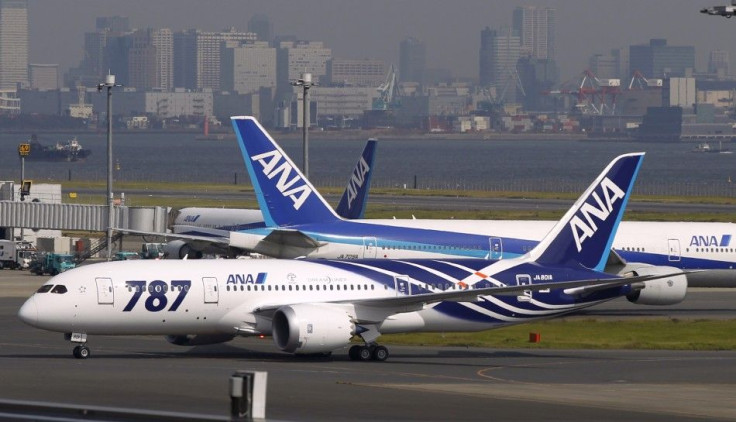Boeing Earnings Preview: Commercial Airplanes Soar, Military and Pension Spending Drags

The Boeing Company (NYSE:BA), the largest U.S. aerospace manufacturer, is expected to post higher revenue in the second quarter but lower earnings per share as cuts in military spending and pension expenses dampen profit from commercial airplanes.
Chicago-based Boeing reports second-quarter earnings before the market opens on Wednesday, July 25. Analysts polled by Reuters expect revenue of $19.3 billion, up from $16.5 billion in the previous year. They forecast earnings per share of $1.11, down from $1.25 in the second quarter of the previous year.
The sale of commercial airplanes accounts for around 60 percent of Boeing's revenue. The company had orders for 109 narrow-body airplanes and 41 wide-body airplanes during the second quarter, in line with analyst forecasts.
In April, Lufthansa took delivery of the first Boeing 747-8 Intercontinental passenger airliner.
In June, FedEx Corp. said it will advance FedEx Express unit's fleet upgrade to more fuel-efficient aircraft by buying 19 additional Boeing 767-300 aircraft. This order is in addition to FedEx Express' agreement with Boeing announced in December 2011 to buy 27 new 767s for delivery between fiscal 2014 and 2018 and to delay delivery of 11 of the 777 aircraft to save on fuel and cut costs. FedEx said on June 19 it was focused on cost cuts to boost profit margins during a prolonged period of slow global economic growth.
Earlier this month at the 2012 Farnborough Airshow in England, Boeing announced orders for 370 aircraft with combined market value of $35.3 billion, beating its main rival, European planemaker Airbus (Paris: EAD), which had orders for 115 aircraft valued at $16.9 billion. The announcements also indicated a busy second quarter for the sales team of the commercial aircraft group.
Boeing dominated order announcements at Farnborough, wrote J.B. Groh, an analyst with D.A. Davidson & Co., in a July research note.
Boeing's military business, which accounts for around 32 percent of the company's revenue, has a weaker forecast compared to its commercial plane division, due to potential federal budget cuts in military spending. The U.S. Budget Controls Act of 2011 calls for $487 billion in cuts over the next decade, which may impact results in the second quarter, according to Trefis.
In May, Boeing received a $365 million engineering, manufacturing and development contract to develop a design that modernizes the flight deck and avionics of the US and Nato E-3 707 Airborne Warning and Control System (Awacs) aircraft fleet.
Rising pension costs, due to low interest rates, are expected to trim profits in the second quarter. In January, Boeing said it expects to pay 83 cents more per share in 2012 compared to the prior year.
In April, the aircraft maker raised its full-year earnings guidance of $4.05 to $4.25 per share to $4.15 to $4.35 per share. Standard & Poors estimated this month that the manufacturer's full-year earnings will be $4.55 per share.
Shares of Boeing fell 88 cents to $73.01 in late Monday afternoon trading.
© Copyright IBTimes 2025. All rights reserved.





















